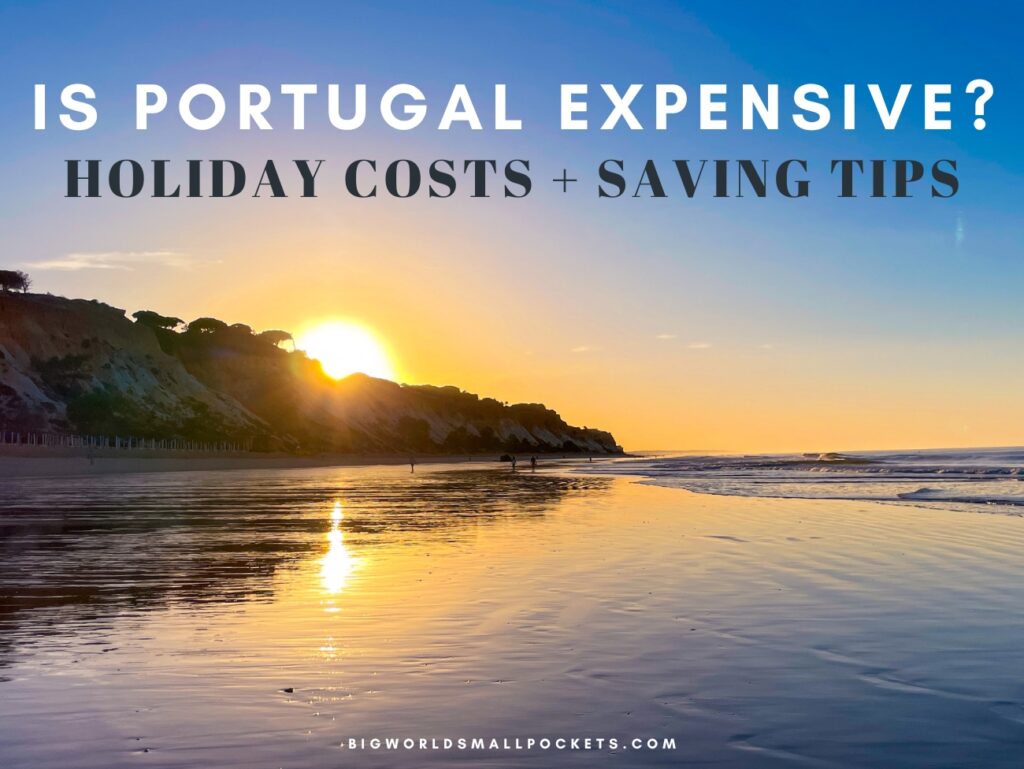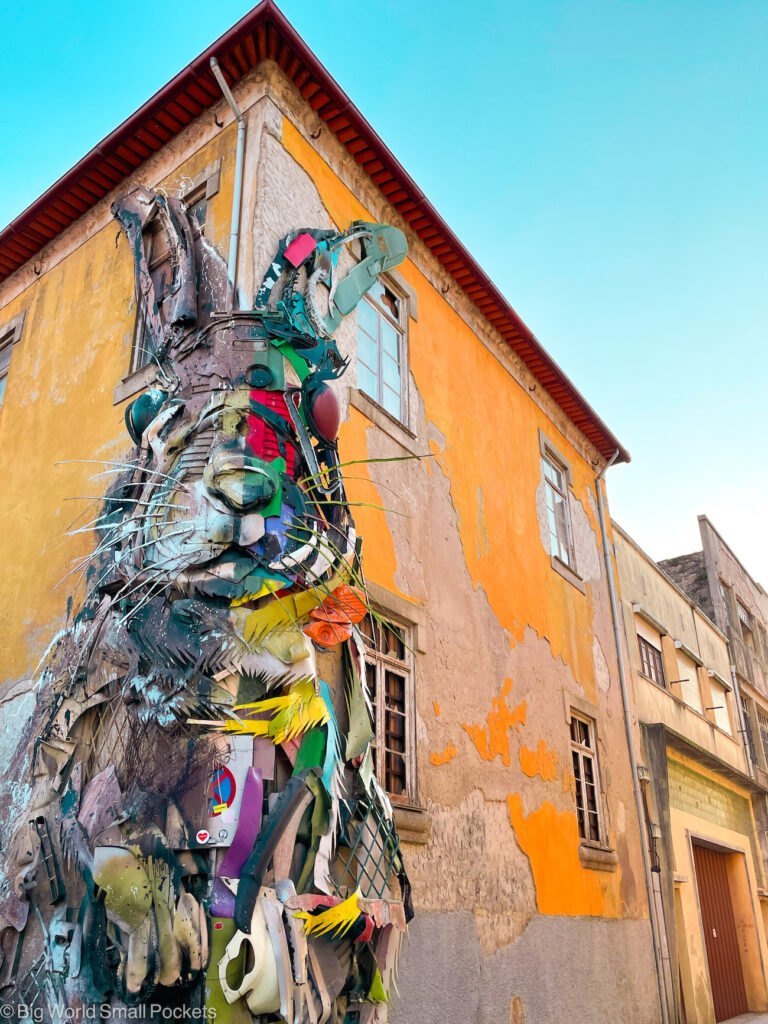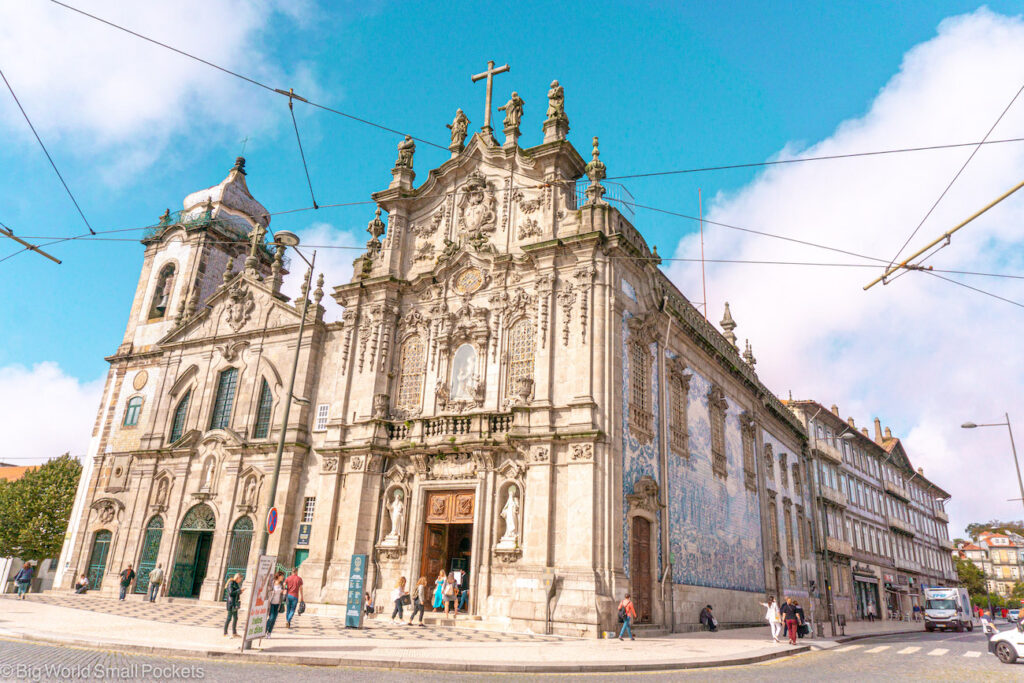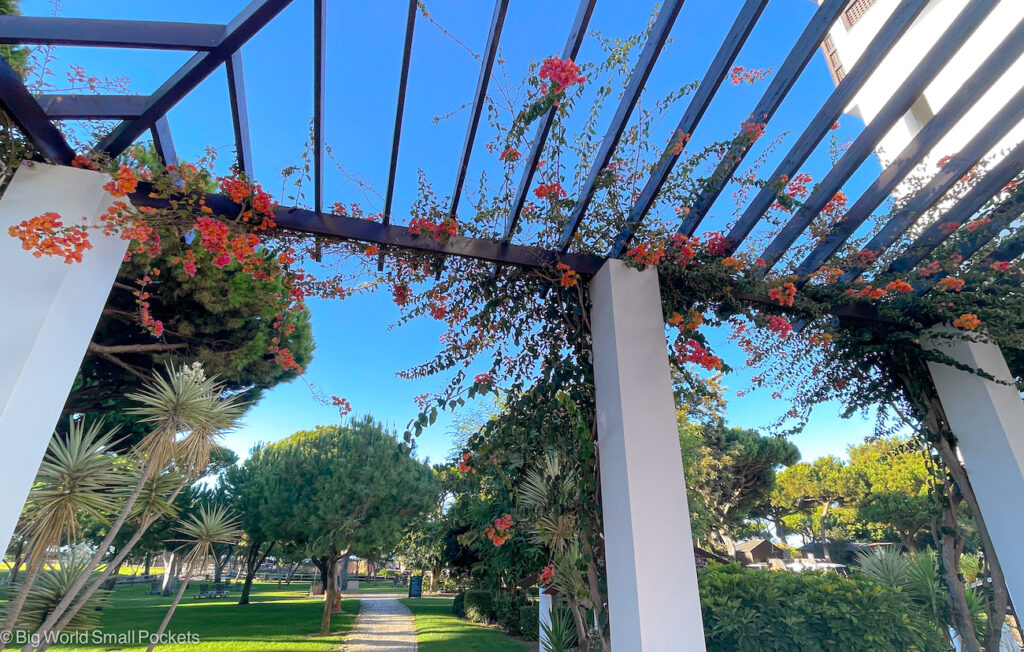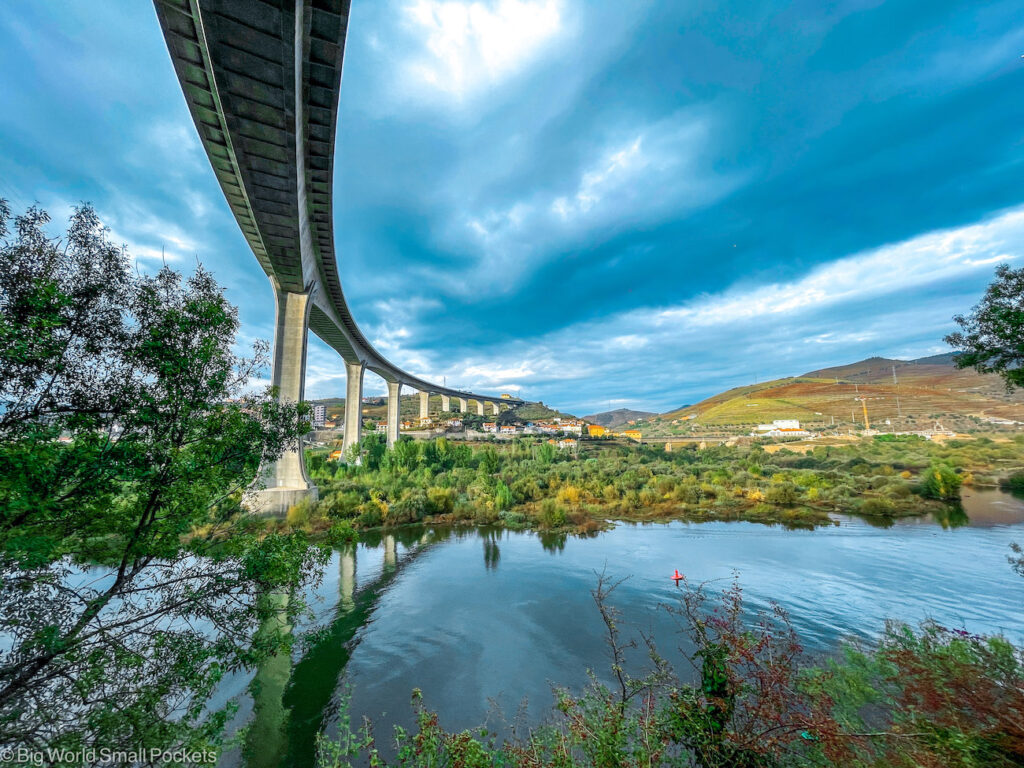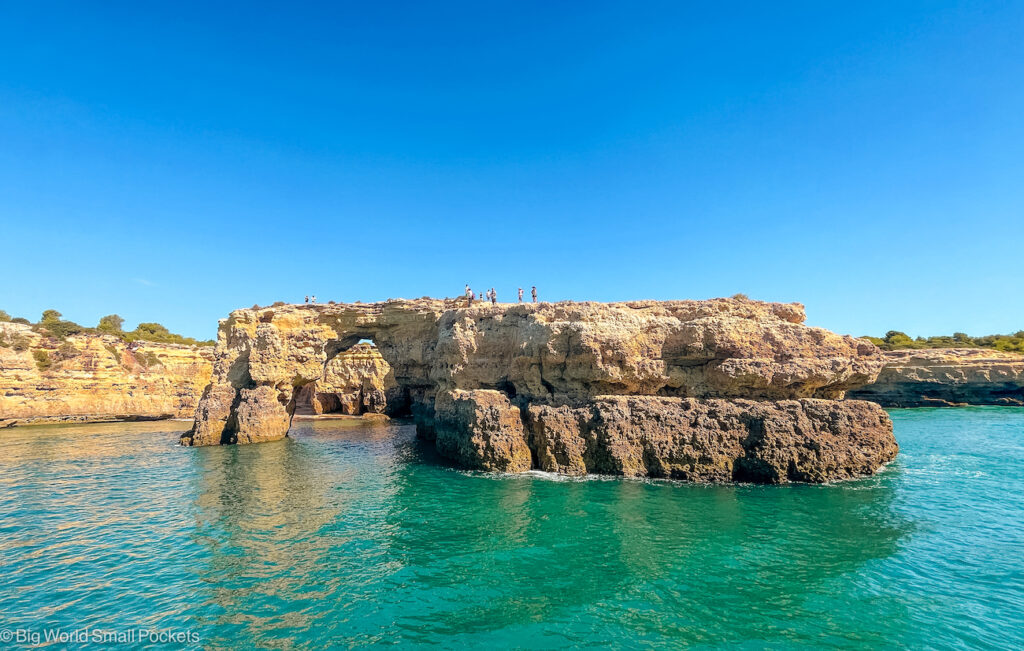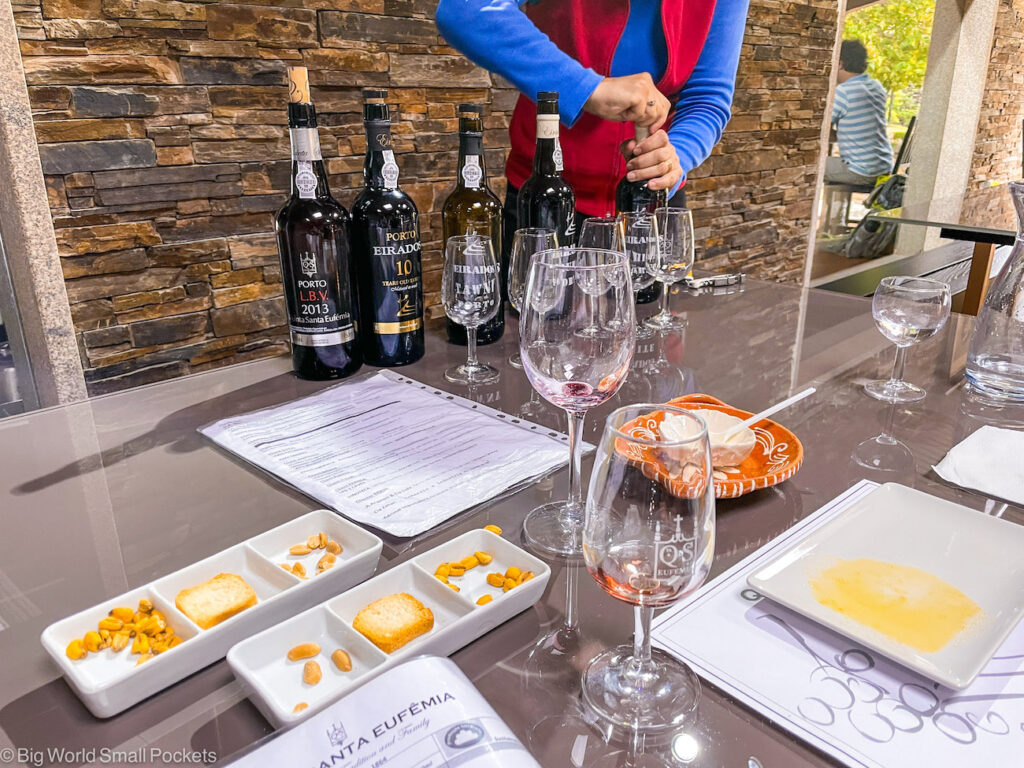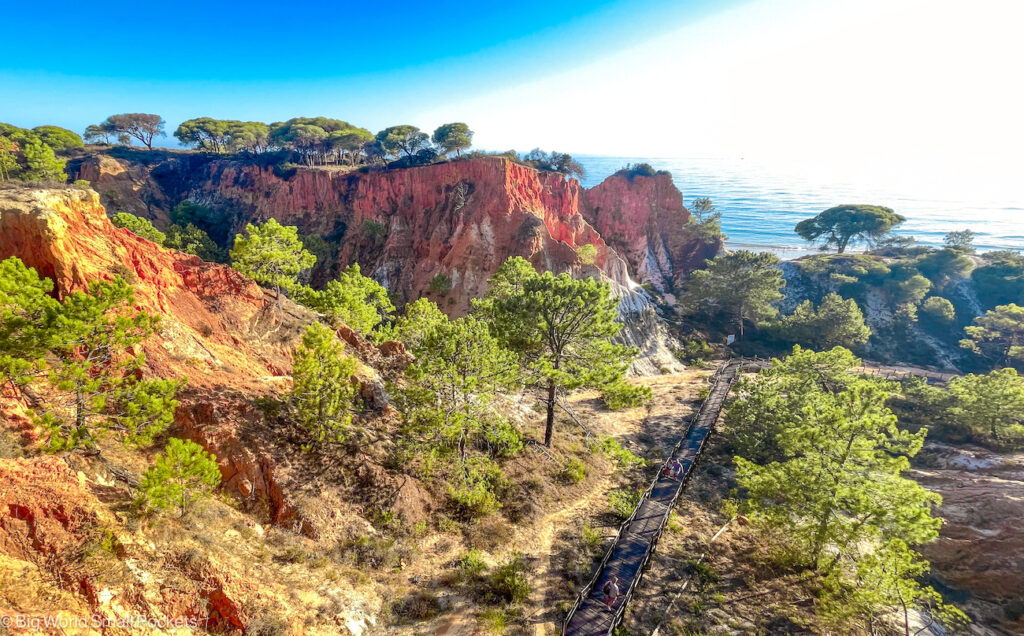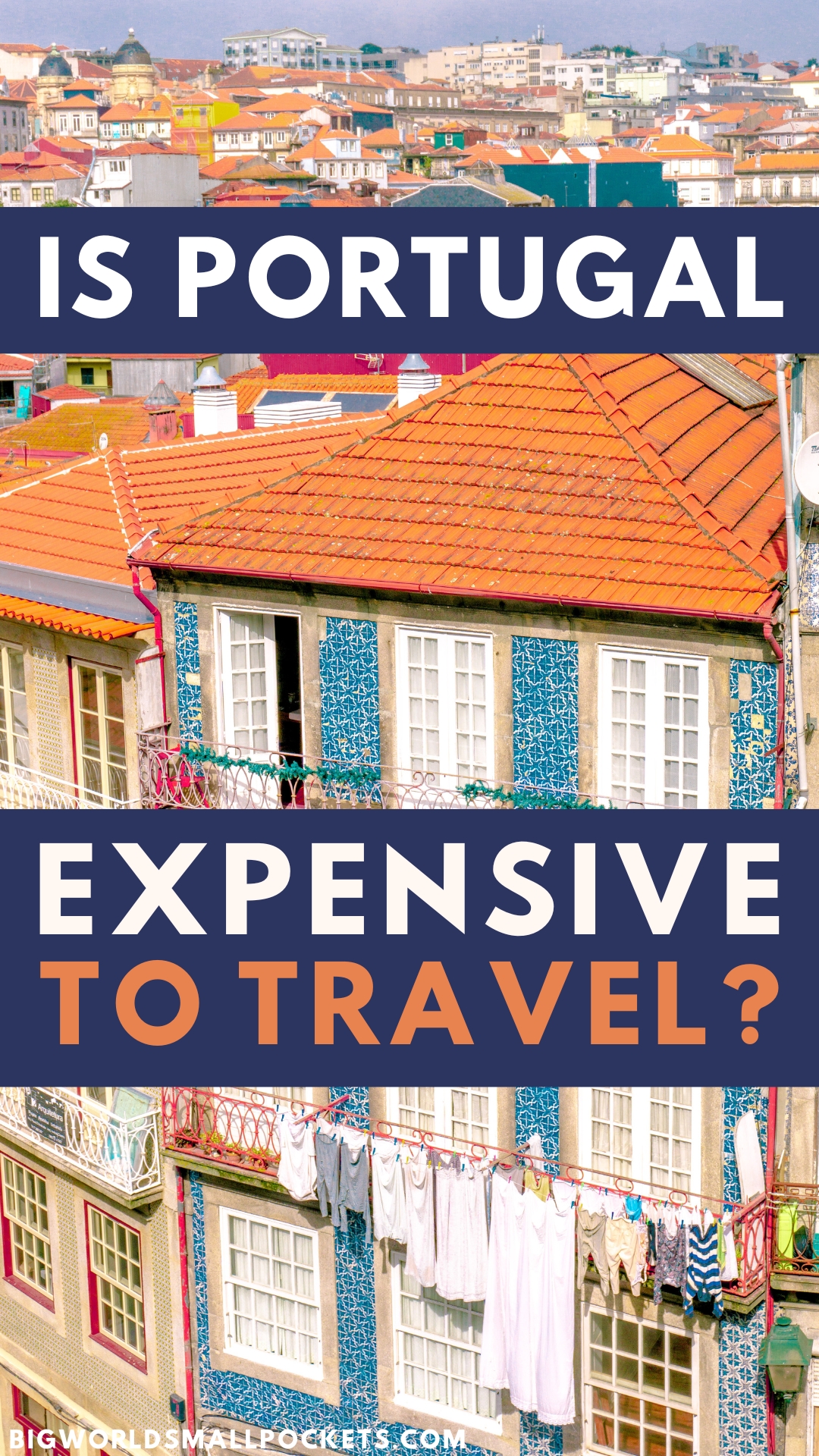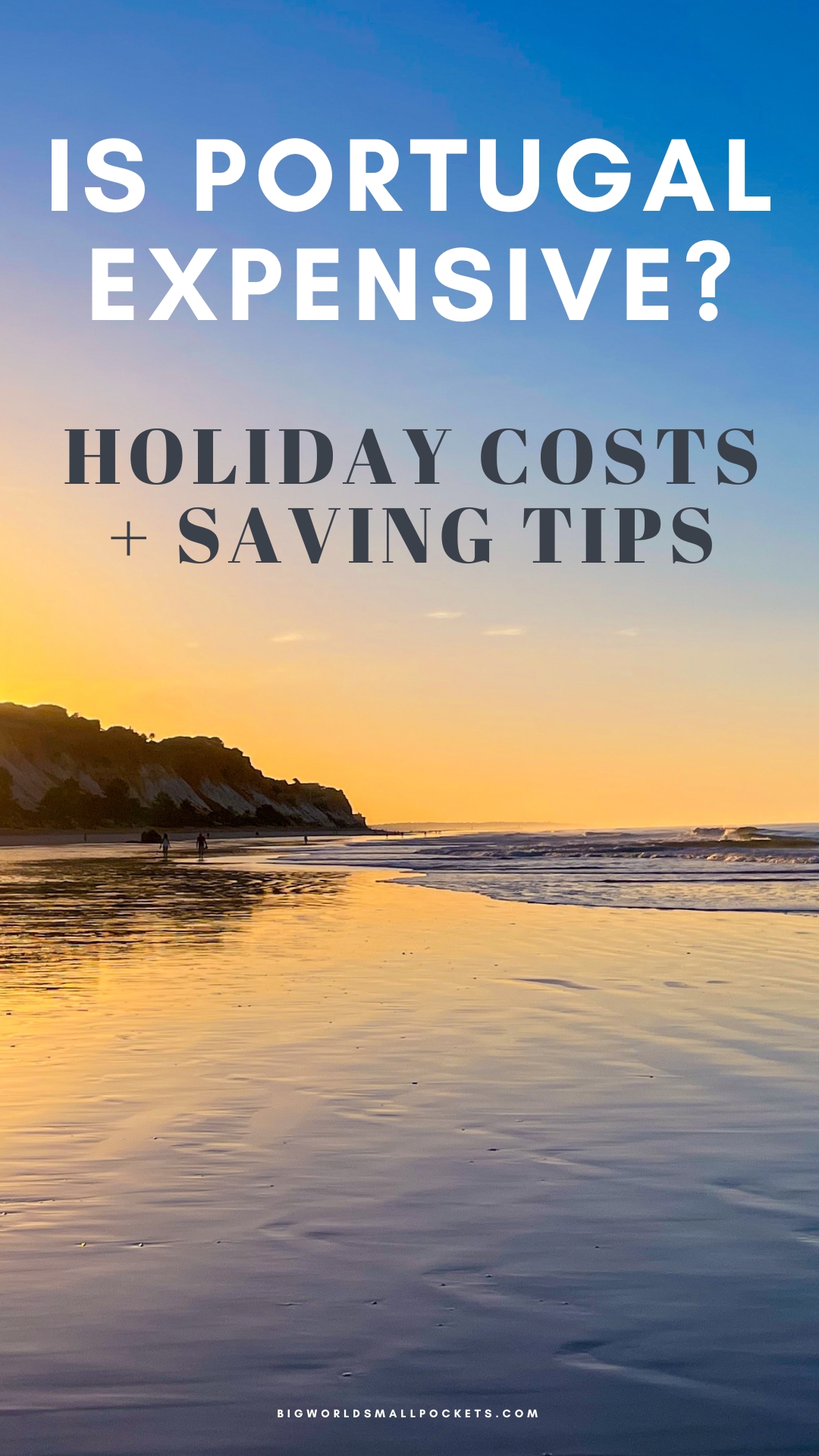You’ll quickly find that Portugal is one of the most affordable countries in western Europe, so a great place to travel in this part of the world on a smaller budget!
That being said, we are talking about western Europe here, one of the most expensive parts of the world, so it’s important to frame any expectations with this in mind.
Is Portugal expensive to travel?
How much might your holiday cost?
These are great questions to ask when planning your trip to this fantastic European country, so I wanted to break down for you the prices you may expect to incur there…
Related Posts
- Top 13 Things to Do in the Algarve
- 10 Best Beaches in the Algarve
- Ultimate 2 Week Portugal Itinerary
This page contains affiliate links meaning Big World Small Pockets may receive a small commission on any purchases at no extra cost to you.
Intro to this Portugal Trip Budget
The first thing I’d encourage you to do is head over to my things to do in Portugal post and then come back here!
To give you some sense of what to expect in this country, this other article is a great read and will give you plenty of ideas about what to do and budget for when travelling here, as well as the general vibe of the place – which I have to say is pretty relaxed (music to many of budget travellers’ ears!)
I’ve visited Portugal several times and this budget will be mapped out based on the trips I’ve taken.
Obviously this will involve travelling affordably as much as possible, i.e. utilising Airbnbs, local guesthouses and small scale activity providers to try and keep the costs down.
That said it will include a few splurges, that wouldn’t be considered budget travel items, but which in Portugal are well worth the expense, such as a hire car or tours if you decide not to rent a vehicle.
This budget doesn’t include the cost of flights to get to Portugal, but thankfully a whole host of budget airlines service airports around this country – including Porto, Lisbon and Faro – from across Europe.
As always I recommend Skyscanner for finding the best fight deals.
It’s also worth pointing out that this budget does not include any visa expenses or travel insurance costs, so don’t forget to factor those in as well.
Portugal is part of the EU and the Schengen zone, so do check what visas (if any) you may need to enter.
World Nomads offers simple and flexible travel insurance. Buy at home or while travelling and claim online from anywhere in the world.
Alternatively, if you’re a long-term traveller, digital nomad or frequent remote worker seeking travel health cover, check out Safetywing’s Nomad Insurance policies..
And now it’s time to crack on with working out how expensive Portugal is to travel and what sort of costs you can expect from your holiday here.
Just enter your details below and I'll email it you - simple!
Information will be sent to the email provided above
#1 Accommodation
Accommodation costs in Portugal are pretty reasonable, especially for western Europe and you can pick up some real bargains, especially if you are travelling as a couple or a group.
In the major cities, hostels are plentiful and are the best option for budget guesthouses.
Outside of this, almost all affordable accommodation in Portugal is in the form of local guesthouses or Airbnbs.
In guesthouses, standard double or twin rooms (usually including breakfast) begin from 70-100€ and Airbnb apartments start from around 50-70€.
At the other extreme of the country and price range, luxury stays in Portugal can be up to 300€+ a night, in amazing 5 star hotels like the Pine Cliffs Resort.
As with most countries, accommodation is more expensive in the high season in Portugal, so prices will be greatest during the months of June through September.
Outside of these months, you’re more likely to get a bargain, so consider travelling in October or May for the best prices.
I also always recommend booking accommodation direct – you’ll usually be able to get at least a 10% discount by reserving this way.
#2 Transport
Transport costs can make a huge difference when it comes to the expense of travelling in Portugal.
If you want to really explore the country significantly, at your own pace and enjoy lots of off the beaten track spots and hikes, you’re probably be best to hire a car.
It’s also best to hire a car if you’re heading to the Algarve, as there’s fewer public transport options down in that region.
Hiring a car is a more cost-effective option if there’s a group of you, but having to foot all the costs yourself if you’re a solo traveller means your budget could soon start spiralling.
As a guide, a hire car with full comp insurance can be picked up for around 60€ a day in Portugal.
If you have excess insurance, you can bring this cost down by not selecting the fully comp insurance option and using your excess insurance to mop up the costs of any accidents you do have.
Of course, you’ll need to add parking costs in cities and fuel onto the rental costs of hiring car, but this can be eliminated by renting an electric vehicle.
Some accommodation operators in Portugal offer charging facilities.
I always recommend Discover Cars for renting a vehicle in Portugal.
Alternatively, if you don’t want to rent a vehicle, you can use buses and trains to get between main towns / destinations in Portugal, which will be cheaper and probably less stressful!
Trains between Lisbon, Porto and Faro are regular and affordable and I highly recommend using them to make your travel more sustainable too.
Learn more about how to get from Lisbon to Porto, for example, here.
You can check times, prices and book tickets for a lot of bus and rail travel in Portugal using Trainline.
If you’re based in one area of Portugal only, i.e. Lisbon or Porto, and only want to venture out for a day to places like Sintra or the Douro Valley, then taking a tour or 2 might be the more cost-effective option for you.
For getting around within cities, public transport is plentiful (the iconic heritage trams in Lisbon are a must) and you can also use Uber in Portugal.
Airports in Porto, Lisbon and Faro are all connected to their respective cities by public transport if you don’t want to pay for a taxi.
#3 Tours & Activities
And coming in at number 3, it’s another variable cost in the Portugal travel budget, because this part of your trip expenses will really depend on how many tours and activities you do.
As I mentioned above, if you don’t have a car, then you probably will take at least a couple of day trip tours in Portugal to help you experience this stunning country at its best – the Douro Valley outside of Porto is a classic here and can check out my top tour picks here.
If you have a car, or are happy to work it out on public transport, then you might not take any tours in Portugal, except perhaps for water-based activities like boat tours to spot whales and dolphins or river cruises along the Douro River.
For example, you can travel independently to Sintra from Lisbon – learn how here.
Within the major cities in Portugal, you don’t really need to take any tours if you don’t want to.
You can easily wander around them, for free or very little, especially as entrance to many churches, museums and parks are either free or cost under 5€.
Free walking tours, where you simply tip the guide at the end, are also common in Portugal, although they can get crowded, so you may consider booking a paid city walking tour if you’d like less people per guide.
Food and wine tours are another popular option that you may opt for in Portuguese cities and costs usually start from around 60€ per person.
#4 Food & Drink
Following on from the potentially large tour bill, you’ll be pleased to know that food and drink in Portugal tends to be very affordable.
Of course, this doesn’t include fine dining options, but in general, a coffee in a local café will cost you around 2€ and a pizza in a casual restaurant around 10€.
Staying somewhere that offers breakfast, or has a small kitchen, so you can pop to a supermarket for a few bits, is a good way to save money here.
In resort-style hotels, particularly in the Algarve, half board (breakfast and dinner) or all-inclusive options are common.
A casual sandwich and drink lunch in a café is likely to be around 5-10€ and dinner out with a glass of local beer around 20€.
Limiting how much alcohol you drink in Portugal is an easy way to keep the budget even lower, but if you do enjoy a glass or 2, sticking to local drinks like wine from Porto or one of the 2 national beers (Super Bock is my choice!) is a good way to go.
This means you should be able to get by on as little as 30€ a day when it comes to eating and drinking in Portugal – it just depends how much and in what quantities you like doing that stuff!
Can I also point out, as a vegetarian, food is not Portugal’s strong point in my opinion! It’s very heavy on the meat and fish!
Just enter your details below and I'll email it you - simple!
Information will be sent to the email provided above
Mid Range Portugal Trip Costs
And now I wanted to give you a real sense of how much it might cost to travel in Portugal.
The budget breakdown is based on 7 days in the country, visiting Lisbon, Porto and the Algarve, so is quite heavy on the travel costs given you’ll be moving around the country and seeing all its highlights in my opinion.
- Return flights to Portugal from London – 230€
- Travel insurance – 50€
- Accommodation per person in a shared guesthouse room – 500€
- Trains / Buses – 80€
- Entrance fees and short tours in cities – 50€
- 2x day tours – 150€
- Food and Drink – 250€
Total – 1310€
PIN IT TO PINTEREST!
I hope you’ve found this article about how expensive it is travel in Portugal, along with my top saving tips, useful.
Is the total figure more or less than you expected?
I’d love to know what you think and also how much you’ve budgeted for / spent on your Portugal travels.
Drop your experiences into the comments box below…

